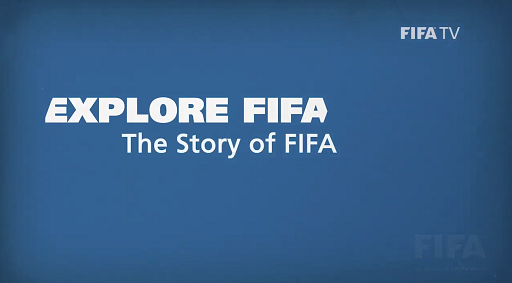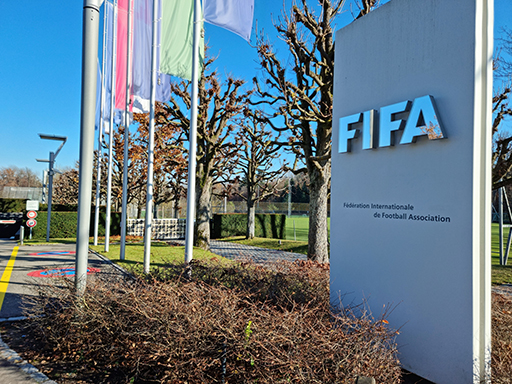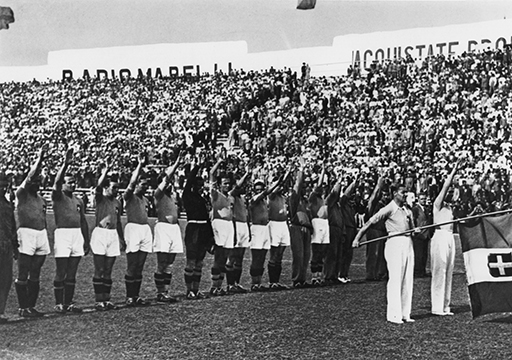1 Early developments in international football politics
While these days FIFA’s reach and influence might be global, it had modest early foundations. Although versions of football can be traced back to ancient history, the game we recognise today was invented by the English and disseminated through British imperialism across the world in the late nineteenth and early twentieth centuries (Goldblatt, 2007).
Activity 1 The unusual World Cup creation story
This activity is broken into two parts and you will learn about how FIFA developed in their early years.
- Watch this video clip, developed by FIFA, which shows a brief history of their foundation. Note down FIFA’s early objectives and see if you can think of any early possible tensions to these ambitions from the founding nations and others who contributed.

Transcript: Video 1 The story of FIFA
The seven founders created the first FIFA statutes for football, and they wanted to unify the laws of the game to make it fair and clear for all who wanted to play. In 1913, FIFA joined the International Football Association Board, which determined the laws of the game, giving a voice at that table to the world of football alongside the existing board members, England, Scotland, Northern Ireland, and Wales. In 1930, Jules Rimet’s dream of a global tournament to unite the world of football came true. The FIFA World Cup was born.
- Now read this article, produced by course authors Ben Oakley and Steph Doehler. What surprises you about some of the politically related decision making in this article?
Why did FIFA lag behind the Olympic movement? [Tip: hold Ctrl and click a link to open it in a new tab. (Hide tip)]
Discussion
- The video suggests that following their inception FIFA’s aim was to attempt to unify the laws of the game. Given that only seven nations, all in Western Europe, convened to form the governing body, this would have initially been a challenging objective – especially as the four individual British FAs did not join the international organisation. This highlights the potential power that the initial nations had in the development of international football.
- Although Britain is perceived as being the birthplace of football it’s fascinating that their FAs were reluctant to get involved in FIFA’s World Cup, yet they did participate in football at early Olympic Games (though, as you’ll have read, only amateur footballers were permitted to compete here). Exploring why this was the case is an interesting avenue to read more about if you are a British football fan.
FIFA remained silent during the First World War (1914–18), not wanting to become involved in the political issues faced by their affiliated nations. The aftermath of the war saw problems within FIFA itself, with the Allied FAs wanting to exclude the defeated countries of Germany, Austria and Hungary (Krüger, 2015).
The men’s World Cups of the 1930s (1930 Uruguay; 1934 Italy; 1938 France) were inconsistently presented unlike today’s slick, highly staged ‘brand’. FIFA had neither the staff, money nor authority to decisively shape the tournaments, and the absence of global television and radio meant that coverage of the tournaments was limited and local (Goldblatt, 2014). Political characteristics permeated through early World Cup events; some examples of these are shown in Table 1. There is also reference to the six political themes from Session 1 (power relations, nationalism and identity, inclusion or segregation, activism, regulation of sport and commercialisation).
| World Cup | What happened? | Political categorisation |
| 1930 Uruguay | Used as a celebration to mark Uruguay’s 100 years of independence from Spain (Rinke and Schillier, 2014). | Nationalism and identity |
| 1934 Italy | Used to improve the national image of Prime Minister Benito Mussolini’s fascist regime. Following a successful final, the Italian team turned towards Mussolini in the stands and gave the fascist salute (Sbetti and Serapiglia, 2020). | Power relations Nationalism and identity |
| 1938 France | Organised in a divergent response to its predecessor as an example of what a democracy could achieve within a continent of dictators. Bitter political conflicts made their way into matches with an infamous example of Italy vs France in 1938. | Conflict Nationalism and identity |
Notice the overlapping themes in Table 1. Nationalism and identity both play a significant role in each tournament with the host nations tending to use the event as a means to showcase their national standing to the rest of the world. Meanwhile wider political themes associated with host governments, especially in 1934 and 1938, were also prevalent.


